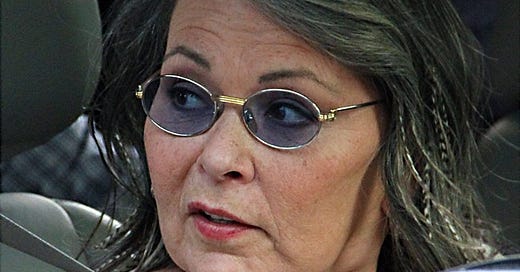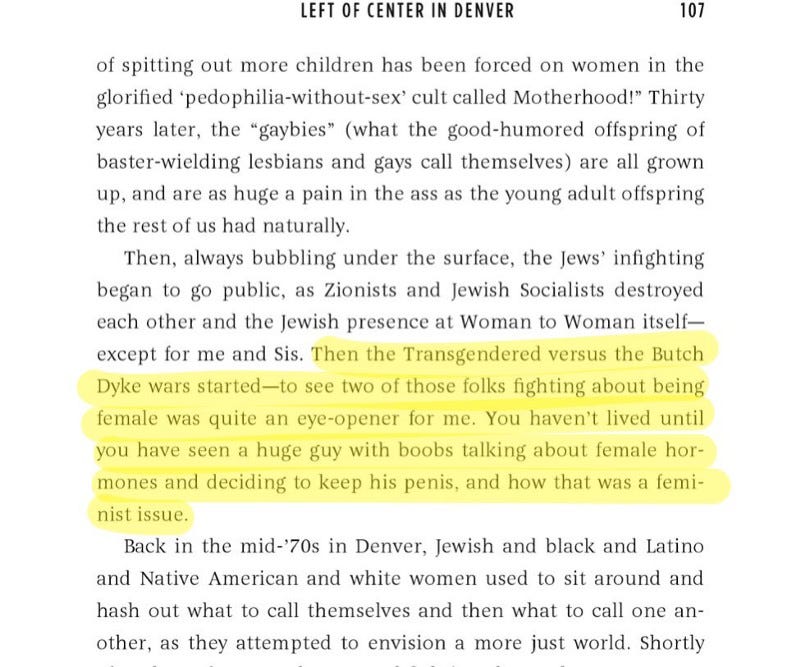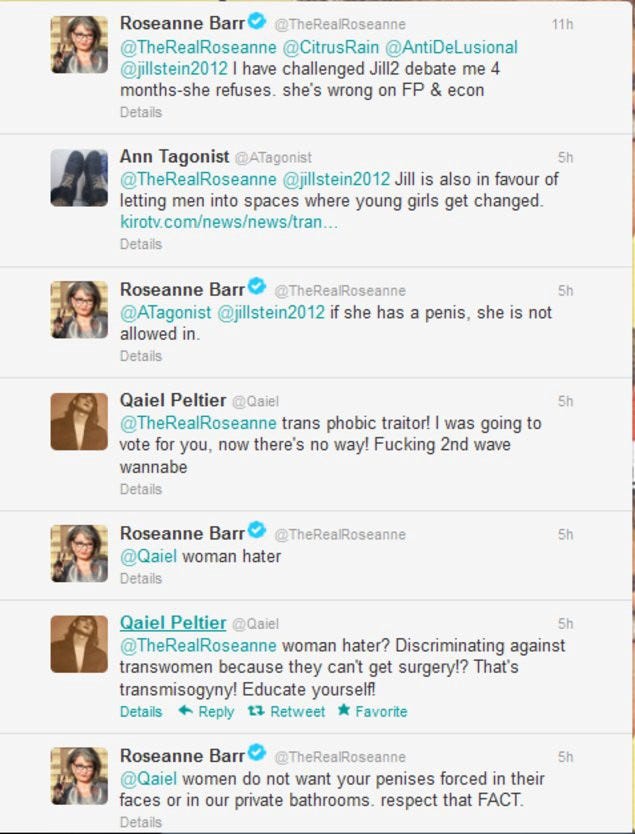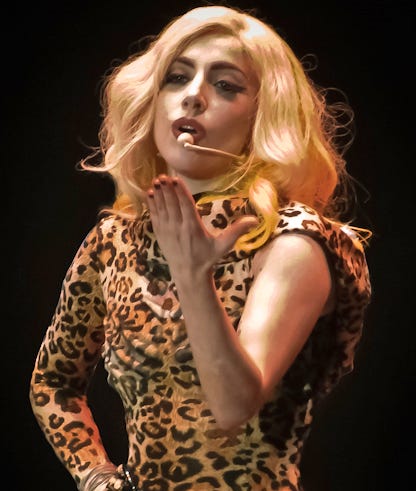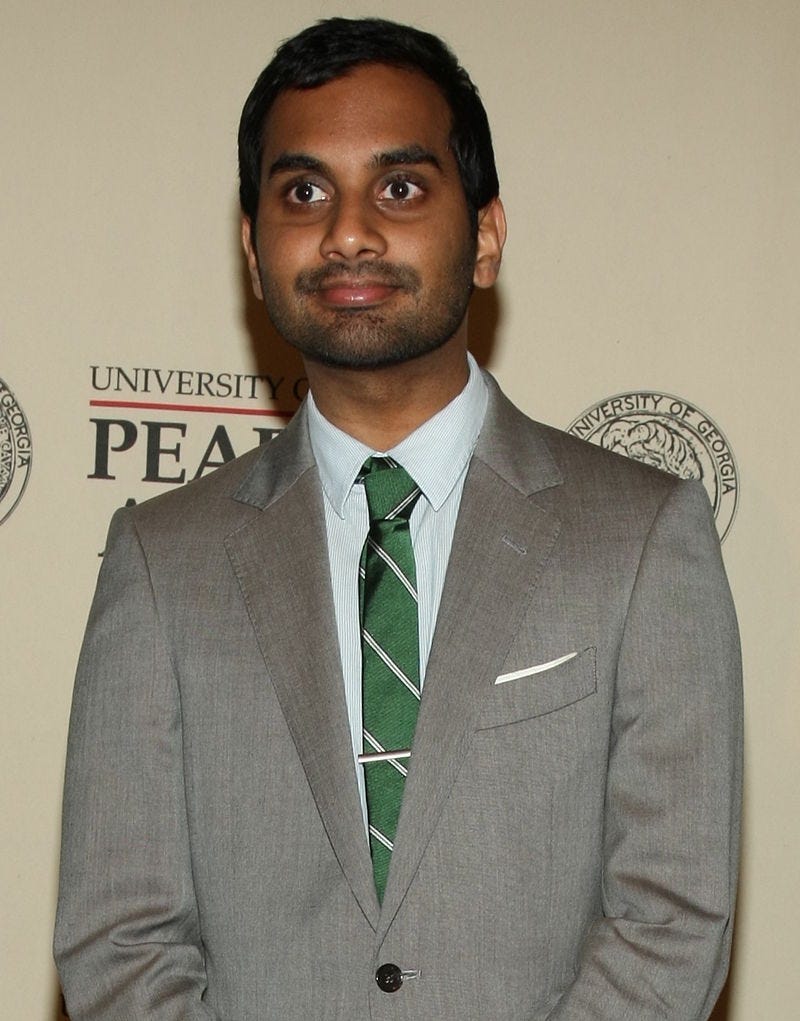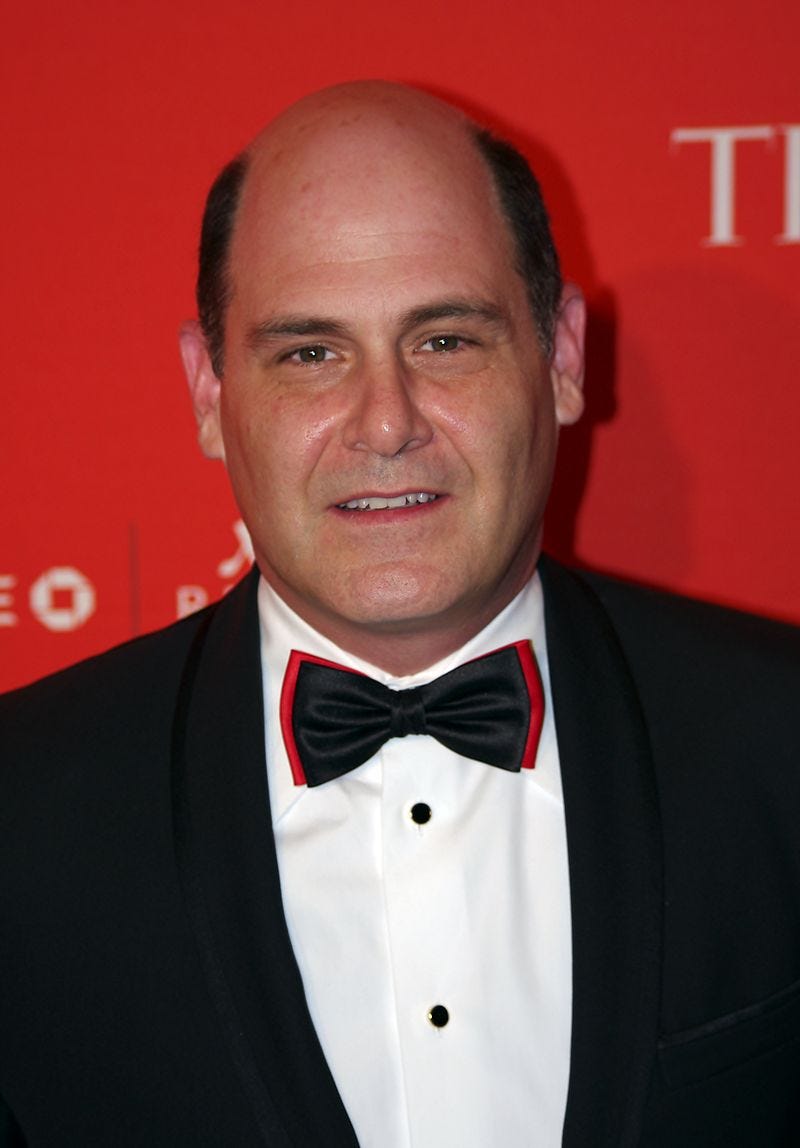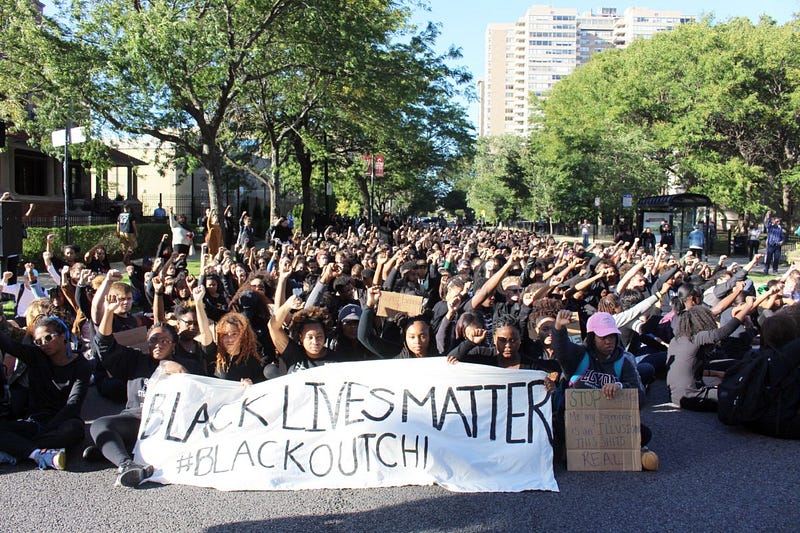You’re Not Problematic, Even If Your Fave Is
On the ethics of loving good work by flawed people.
On the ethics of loving good work by flawed people.
TW: This piece discusses sexual assault and domestic violence.
I have no judgment for people who love Roseanne because of her earlier work. Her show provided a refreshing, complex, and empathic portrayal of working class and fat people, at a time when few media outlets were interested in cultivating such representation. The show had a lot of meaningful lessons to dispense, and the love that bonded its members was palpable and comforting. Whether you grew up with the show, or discovered it fairly recently, I think you have a right to consume it and enjoy it. And I don’t think you deserve to feel a shred of guilt for that.
But you gotta know that there’s a reason the “boy who wears dresses” in the new season decides, quite conclusively, that he’s “still a boy”. It’s because Roseanne doesn’t think trans women are real. And you ought to know she’s been pretty dang consistent in voicing that view, for quite some time:
Roseanne Barr does not respect or support trans people. She sees trans women, in particular, as predatory and deluded. She is obsessed with trans people’s genitals, but she thinks we are the dangerous, invasive ones. She has never made a sincere apology for voicing these opinions, and has continued to voice them, year after year.
And the original Roseanne is a really good, comforting, important show.
And the people who love that show are ethically fine. As long as they are willing to acknowledge both truths.
— — — —
People sometimes respond to criticism of a beloved creator by making the conversation all about them and their feelings. Their guilt, their internal conflict, their inability to process the goodness of the art and the vileness of the artist. Please do not do this. It derails the conversation, and it is beside the point.
We need to acknowledge the flaws of Roseanne so we can be responsible consumers of media, and so we can lessen the negative impact she has on society. We don’t need to berate fans of her show or make people self-flagellate over their love for it.
If you are a fan of Roseanne, you need to listen to, and consider the impact of, the biases and flaws she has. You don’t need to publically and performatively beat yourself up for having been fooled by her better attributes. It’s not about you. It’s about the people she’s hurt. And you’re never gonna be pure. And neither am I. We all love work by flawed creators. Just own it, and chill out.
— — — —
Being conscious and outspoken about a creator’s prejudices (which in this case, are vitriolic and dangerous) is part of consuming a piece of media responsibly. And if you exist in our terrible world, you have some problematic faves. Face it, accept it, and reflect on it. I will do that with some of my beloved media figures, right now!
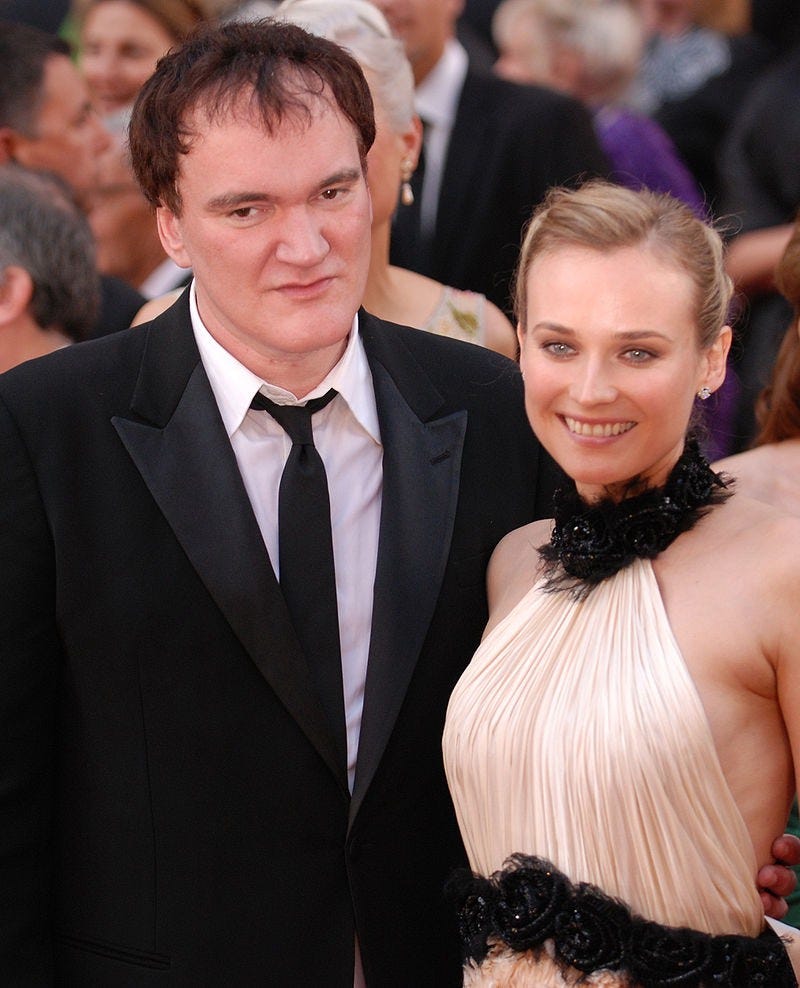
I don’t feel shame for still loving Inglorious Basterds and Jackie Brown, now that I know conclusively that Quentin Tarantino abused his power regularly. Those movies mean a lot to me — and a lot of awesome people *were* involved in them. I’ll love you forever, Sally Menke.
But I do think that when I discuss his films, I have a responsibility to acknowledge that he is a creep who enjoys literally spitting on women who work for him. Quentin Tarantino forced Uma Thurman to drive a stunt car that she was clearly afraid to drive, resulting in her being permanently injured. He cannot undo that harm.
And I still love Kill Bill.
This combination of feelings causes me zero distress.
— — — -
It is totally okay to have both appreciation and disgust exist in your mind at once. I think part of why I’m comfortable with this level of nuance is that I’ve been in abusive relationships. I’ve felt love and disgust, simultaneously, for one human. I’ve done that multiple times, actually.
A man who raped me died, several years later, of a heroin overdose. I felt sorry for him, and I felt self-righteous that he was gone from existence. My dad used to berate me and behave creepily towards me…and I also have beautiful memories of mowing the lawn with him, and overturning rocks in the front yard to watch ants scurry around. I am happy to contain these multitudes.
As an abuse survivor, I am very familiar with seeing the positive and negative attributes of a person co-exist, like oil and water, swirling around one another and never mixing or balancing one another out. I can have compassion for someone who has done horrific things to me. I can hold onto, and cherish, warm, safe memories with them. I can also know that, on balance, they have done more harm in this world than good, and I can be glad when they’re gone.
So why not harbor both appreciation and disgust for media figures as well? In theory, it should be even easier to do, because you never had to interact with the actual person, and you can choose to encounter their art on your own time. Love the show, hate the creator. Or, love the creator’s early work, hate their transphobic tweets. Or, love the women who acted in and edited the film, hate the man who made their lives hell. People are complicated, life is long, and no existence can be summed simply.
It is okay to have complicated emotions about a person forever. Their existence isn’t an incompatibility you have to resolve. Roseanne made a great show about struggling under capitalism. She’s also a bigot. It’s okay. You’re okay.
— — — -
Another example: I love Lady Gaga’s music, and I watched her rheumatoid arthritis documentary and cried. BUT ALSO she is kind of a dipshit who has worn Burkas for “fashion” and she uses words like “oriental”. On her most recent album, there’s a really condescending song about Trayvon Martin, which was written years and years after his death. It really sucks.
Stefani Germanotta is not someone who has any reasonable excuse for not knowing better. She had the resources to learn. She was, and is, a woman of the world. Yet she seemed not to care. She could have done better, but she didn’t. It sucks.
Beautiful, Dirty, Rich is still a really sexy song and video.
— — — -
If people were made to feel less guilty about loving a “problematic person”, would they be more receptive to hearing about and acknowledging harm? If I refuse to guilt you for liking Aziz Ansari, will you stop blaming the woman he coerced into having sex with him? If I first acknowledge that Al Franken meant a lot to you and did a lot of political good, will you admit that he shouldn’t have groped all those women? If I don’t try to pry The Usual Suspects from your warm, still-alive fingers, can you accept that Kevin Spacey is a predator?
Have you been shamed for loving the work of a problematic person? If so, I’m really sorry, and I think that’s really unfair. You didn’t give that director a free pass to assault somebody. You didn’t know that buying that album would make it easier for that guy to get away with battery. It’s not your fault. It has nothing to do with you.
But have you ever heard about the misdeeds of someone you like and just sort of … jumped out of your skin with defensiveness? Did you feel the need to pick-apart the accuser’s story? Did you seek out reassuring articles about how the creator actually isn’t so bad? Did you get outraged about being “guilted” for liking the creator, when nobody had actually attacked you for it?
If so, I think you need to chill out. Open the windows. Let the air in. Let the truth in. You’re not a bad person. It’s okay.
— — — —
One more example: I love Mad Men. I adore so many of the characters on the show, the writing, the fashion and set design, the plot lines, the character arcs, the performances, the ennui, the soundtrack…I’ve watched the show all the way through four or five times, and I will continue to watch it, at least annually. I adore it.
And I know that Matt Weiner sexually harassed a writer for the show.
I am not abandoning the show because I know that tons of wonderful women were involved in every stage of its production. I do not feel shame that I couldn’t tell Weiner was a pervert, even though his show did glorify Don Draper’s philandering and abuse. And I recognize that there’s no point in disowning my love for the program. That will not make me pure.
— — — — -
I am not surprised when an institution has predators lurking inside it, and benefiting from the institution’s success. That’s true of basically every university ever, every major municipal government, every company of significant size, and most large families. We live in a world where power and wealth are rewarded, and where abusiveness and hatred are excused in “great” people. The only way out is through. We cannot run away from this.
I’m not gonna say every university that has harbored a predatory professor is utterly garbage and must be abandoned. But I’m gonna demand to see consequences. I refuse to excuse the problematic and abusive behavior. And I will not stop bringing it up. No matter how well Loyola University Chicago did during March Madness, I’m not gonna forget that Loyola cops harassed black students.
Similarly, I’m not gonna walk away from all the shows, books, songs, movies, and organizations that are tainted by association with abusive and predatory people. We cannot solve the problem of predatory, prejudiced people by running away from everything they touch and claiming purity. We would have to destroy every organization, burn every book, stop listening to every song…predators are everywhere. We have a right to get away from them, but we can’t run from every institution that has harbored them . We have to confront.
But in order to do that, we have to also accept that living in this reality is nuanced, and emotionally complicated, and hard. Recognizing that beloved people can do terrible things is the first step of that process. When we are willing to admit this fact, we are better positioned to notice, and call out, bad behavior, rather than assist in its cover up. When we are comfortable inhabiting a world that is flawed, we can look at those flaws head-on, and not hide in nostalgia, shame, or fear.
— — — -

